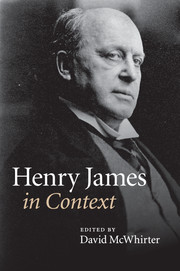Book contents
- Frontmatter
- Contents
- List of Illustrations
- Notes on Contributors
- Preface
- Abbreviations
- Chronology
- Part One Life and career, times and places
- Part Two Historical and cultural contexts
- Chapter 9 Aestheticism and Decadence
- Chapter 10 Authorship
- Chapter 11 Children
- Chapter 12 Consumer culture
- Chapter 13 Cosmopolitanism
- Chapter 14 Courtship, marriage, family
- Chapter 15 Ethics
- Chapter 16 Language
- Chapter 17 Law
- Chapter 18 Manners
- Chapter 19 Media and communication technologies
- Chapter 20 Modernism
- Chapter 21 Money and class
- Chapter 22 Museums and exhibitions
- Chapter 23 Nationalism and imperialism
- Chapter 24 Print culture
- Chapter 25 Psychology
- Chapter 26 Race
- Chapter 27 Realism and naturalism
- Chapter 28 Sexualities and sexology
- Chapter 29 Social sciences and the disciplines
- Chapter 30 Things
- Chapter 31 Time
- Chapter 32 Travel and tourism
- Chapter 33 Urbanity
- Chapter 34 Visual culture
- Chapter 35 Women and men
- Chapter 36 Work
- Part Three Reception
- Further reading
- Index
- References
Chapter 12 - Consumer culture
Published online by Cambridge University Press: 05 August 2014
- Frontmatter
- Contents
- List of Illustrations
- Notes on Contributors
- Preface
- Abbreviations
- Chronology
- Part One Life and career, times and places
- Part Two Historical and cultural contexts
- Chapter 9 Aestheticism and Decadence
- Chapter 10 Authorship
- Chapter 11 Children
- Chapter 12 Consumer culture
- Chapter 13 Cosmopolitanism
- Chapter 14 Courtship, marriage, family
- Chapter 15 Ethics
- Chapter 16 Language
- Chapter 17 Law
- Chapter 18 Manners
- Chapter 19 Media and communication technologies
- Chapter 20 Modernism
- Chapter 21 Money and class
- Chapter 22 Museums and exhibitions
- Chapter 23 Nationalism and imperialism
- Chapter 24 Print culture
- Chapter 25 Psychology
- Chapter 26 Race
- Chapter 27 Realism and naturalism
- Chapter 28 Sexualities and sexology
- Chapter 29 Social sciences and the disciplines
- Chapter 30 Things
- Chapter 31 Time
- Chapter 32 Travel and tourism
- Chapter 33 Urbanity
- Chapter 34 Visual culture
- Chapter 35 Women and men
- Chapter 36 Work
- Part Three Reception
- Further reading
- Index
- References
Summary
In the third chapter of The Ambassadors (1903), Strether, Waymarsh and Maria Gostrey go window-shopping. While Strether finds that the beguiling Chester displays make him ‘want more wants’, finds indeed, that he desires ‘things that he shouldn’t know what to do with’, Waymarsh limits his interest to ‘the merely useful trades’, piercing with ‘sombre detachment the plate-glass of ironmongers and saddlers’. The friends’ respective approaches to consumption indicate their different relations to puritan asceticism, but also summarize the unprecedented commercial developments that occurred during James’s lifetime. Whereas Waymarsh’s attitude at this point can be identified with capitalism’s industrial phase, in which the emphasis was on production and the procurement of goods was predominantly a matter of necessity, Strether belongs to the new consumer age in which shopping has become a leisure activity and the locus of multiplying desires. During the second half of the nineteenth century the first department stores appeared and proceeded to expand steadily, both in size and range of merchandise, and the strategies of selling became increasingly sophisticated and omnipresent. Lambert Strether – whose adventure of self-exploration begins with uneasiness and dissatisfaction before a hotel mirror, allayed only by the thought of opportunities for acquisition that await him in London – is one illustration of James’s acute apprehension of the significance of consumption in the construction of national, social and gender identities, and in the formation of modern subjectivities.
- Type
- Chapter
- Information
- Henry James in Context , pp. 126 - 137Publisher: Cambridge University PressPrint publication year: 2010



